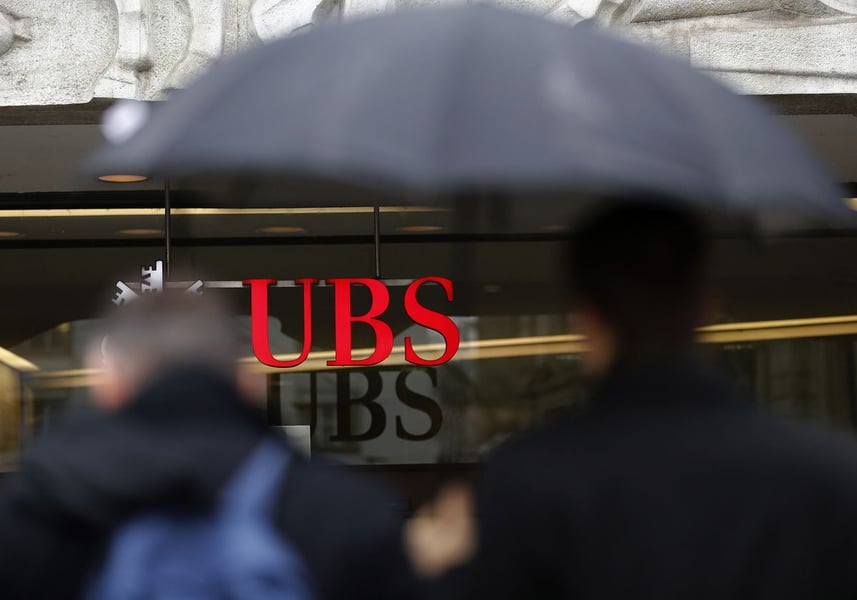

UBS' decision last month to shut down its high-end U.S. private bank for ultra-wealthy clients creates a host of questions for the advisers who work there and cultivate those, oh so, lucrative relationships.
First off, UBS is keeping mum about exactly how many advisers are affected by the decision, which was announced internally at UBS in June and reported widely in the trade press this week. It's also not saying how much in client assets will potentially move.
How big an impact will this change, which takes effect at the start of 2021, make?
What's known is that UBS, like other large wirehouse banks, has been fighting to hang onto as many of its experienced advisers as it can and has also recently slowed down recruiting financial advisers, which is expensive and can drive up overall compensation.
Next, merging operations of two disparate business units is a common way to stabilize or lower expenses for financial services companies with wealth management operations. How deep will the staff cuts go?
These advisers have reportedly been offered a path from banker to financial adviser, which means they would be compensated in the same way as UBS' typical advisers. That emphasizes the advisers' value and is extremely positive.
And finally, is the private bank adviser's relationship with clients established in such a way that it makes it extremely difficult for the adviser potentially to leave UBS and perhaps start working at a rival with those elite clients? The fight for the control of the client, the adviser or the firm, has never been more intense, and this change by UBS has to be looked at in that context.
You better believe that UBS' rivals, including Morgan Stanley, Merrill Lynch and the host of giant registered investment advisers, are trying to figure out answers to those questions and whether they can convince these elite UBS advisers to change firms.
With more than 6,000 financial advisers in the United States and the Americas, UBS was not offering much in the way of comment. "We are committed to providing our clients with the best that UBS has to offer," a spokesperson said.
UBS has been overhauling its wealth management business in the United States for more than two years, integrating it into its global wealth management franchise.
This latest move is no surprise, but leaves the private banking advisers involved with plenty of questions.

With its asset pipeline bursting past $13 billion, Farther is looking to build more momentum with three new managing directors.

A Department of Labor proposal to scrap a regulatory provision under ERISA could create uncertainty for fiduciaries, the trade association argues.

"We continue to feel confident about our ability to capture 90%," LPL CEO Rich Steinmeier told analysts during the firm's 2nd quarter earnings call.

It's the mega-RIA firm's third $1B+ acquisition in just three months.

The deal marks a strategic entry into private asst markets for the ETP, ETF innovator.
Orion's Tom Wilson on delivering coordinated, high-touch service in a world where returns alone no longer set you apart.
Barely a decade old, registered index-linked annuities have quickly surged in popularity, thanks to their unique blend of protection and growth potential—an appealing option for investors looking to chart a steadier course through today's choppy market waters, says Myles Lambert, Brighthouse Financial.
